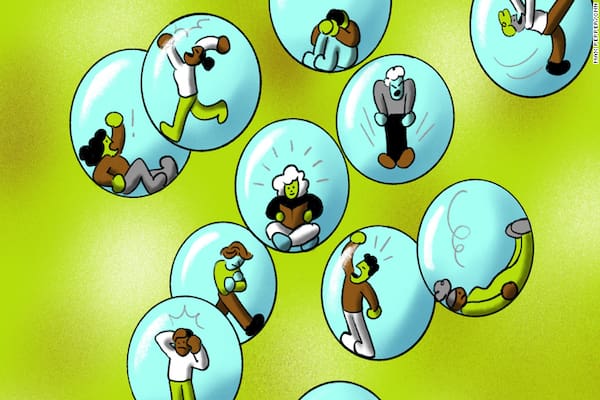I was sitting in on a youth group leaders’ Zoom meeting when a participant flourished a list of members to chase up on attendance. “Now that they’re home all evening,” she reasoned, “and have no other commitments, there’s no excuse for them not to show up.”
Sound reasoning. We can unpack the techniques that Christian groups use to enforce attendance another time, but I suppose she’s right. If you have nowhere else to be you might as well attend youth group. But—would our absent members agree? More than that, is it reasonable to expect that people should always be contactable, always available to turn up to social events, just because we’re in lockdown?
Over the past two months, I’ve taken a crash course on the nuances of non-physical socialisation. For us introverts, lockdown should have been our time to shine. We’ve been trained to deal with limited social interaction over the course of our lives. Quarantine would give us the opportunity to selectively engage in meaningful interactions, skipping over the draining small talk that litters everyday life.
It’s been disappointing to discover that this isn’t the case. Like many, I find it draining to interact with those who aren’t my closest mates. I find it difficult to reply to online communication from people whom I don’t know well, preferring to save messages up for when I am in the right headspace. I generally curate these interactions by being selective about which events I attend. It helps that my phone plan is cheap and crappy, since I can put my late replies down to being outside and not having data.
There was a conceit in me coming into social distancing thinking that wow, I was going to miss hanging out so yes, I’d be down for any manner of Zoom calls. Fast-forward two months later: I’m settling down in my sweet little iso life, eking out a humble routine of bed to desk to dinner table to desk to bed, and the natural tendencies of introversion are creeping back. Online socialisation, once so welcome amid the loneliness, is revealing itself to be as draining as its physical counterpart. There’s another problem: online interaction is more deliberate, sapping more energy. On some level, physical interaction makes socialisation more natural and without it, the online space becomes a barrier we must cross to engage with other people. The resounding silences in my Zoom tutorials suggest that I’m not alone in feeling this.
With the exhausting rigmarole of classes (and for some, work) moving online, introverts don’t always have energy left over for social events. Instead, a solo recharge is preferable. Just because we are home all day doesn’t mean that we stop being introverted.
So it seems introverts can’t win. Lockdown is posing its own challenges, highlighting the effect of our work cultures and social spheres that expect constant availability and quick replies.. But to any despairing fellow introverts I have this to say: just because we’re at home all day it doesn’t mean that we can’t still curate our social interactions. Don’t feel pressured to show up just because you’re free.





